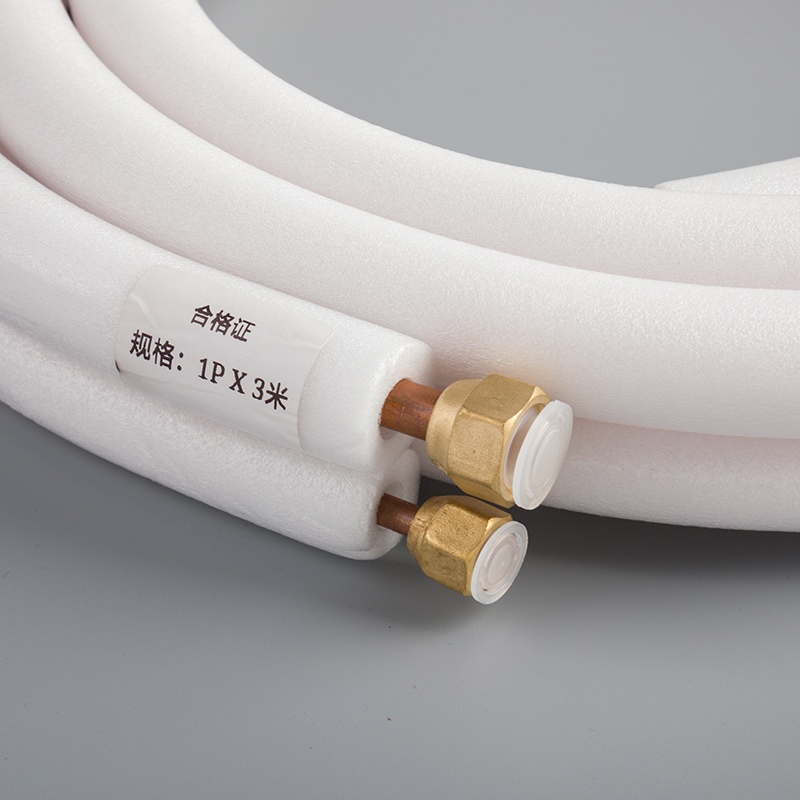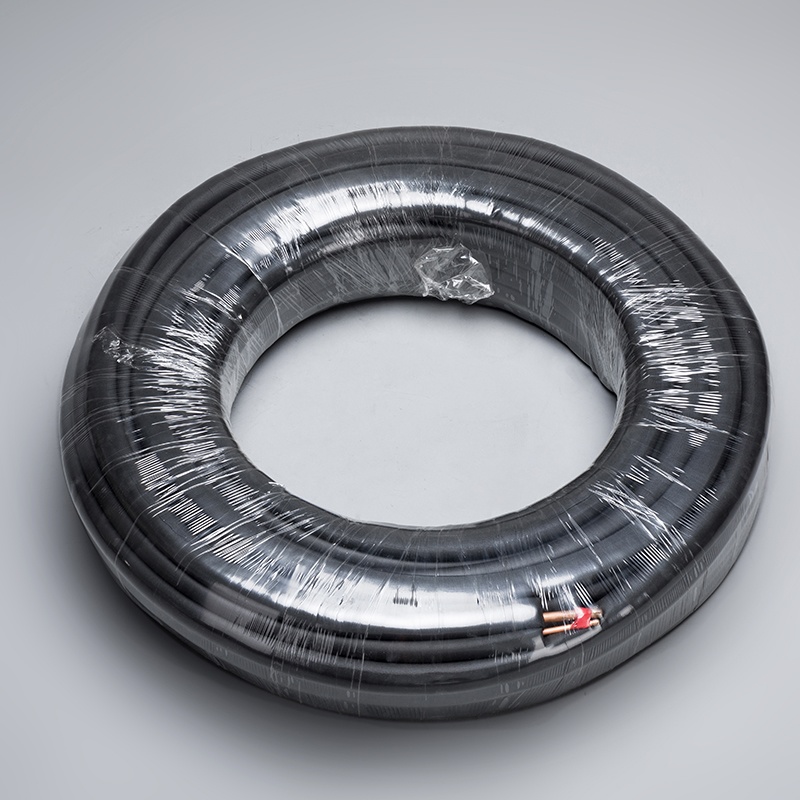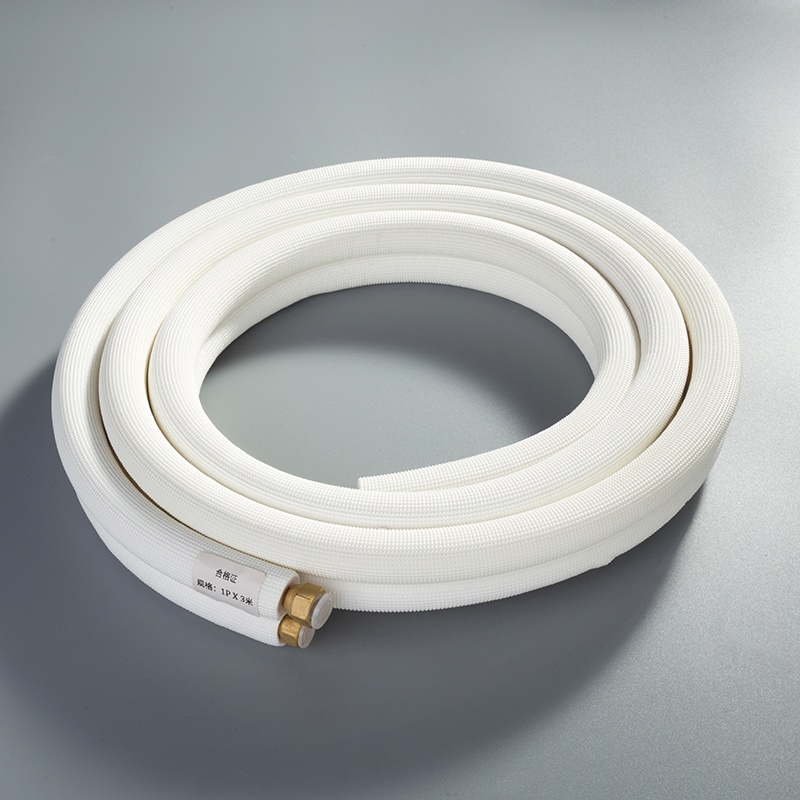Discover the Efficiency: Copper vs. Aluminum Tubes in Aircon

In air conditioning systems, the choice of tube materials plays a crucial role. What is copper tube in aircon? Copper and aluminum tubes are commonly used in these systems. Copper tubes are known for their superior thermal conductivity, while aluminum tubes have lower efficiency in heat transfer. This blog aims to compare the efficiency of copper versus aluminum tubes in aircon units, shedding light on their performance differences.
What is copper tube in aircon
Properties of copper tubes
Copper tubes are renowned for their exceptional thermal conductivity, a key factor in their efficiency within air conditioning systems. With a thermal conductivity value of 38, copper tubes excel at transferring heat effectively. This characteristic allows for rapid cooling or heating processes, ensuring optimal performance of the aircon unit. Moreover, the durability of copper tubes is noteworthy. Their robust nature guarantees longevity and reliability in various environmental conditions.
Benefits of copper tubes
The energy efficiency of copper tubes is a significant advantage in air conditioning applications. By facilitating quick and efficient heat transfer, these tubes contribute to lower energy consumption and reduced operational costs. Additionally, the superior thermal conductivity of copper enhances the overall system performance by maintaining consistent temperatures throughout the unit. This results in improved comfort levels and enhanced cooling or heating capabilities.
Copper vs. Aluminum

Thermal conductivity comparison
When comparing copper and aluminum tubes in air conditioning systems, the thermal conductivity values play a crucial role in determining their efficiency. Copper boasts a high thermal conductivity value of 38, which significantly surpasses aluminum's value. This means that copper tubes can transfer heat more effectively, leading to quicker cooling or heating processes within the aircon unit.
Copper vs. aluminum values
The thermal conductivity value of copper is notably higher than that of aluminum. With a value of 38 for copper and only 175 for aluminum, the superiority of copper tubes in heat transfer becomes evident. This difference underscores the advantage of using copper tubes in air conditioning systems where efficient temperature regulation is paramount.
Durability comparison
In addition to thermal conductivity, durability is another essential factor to consider when choosing between copper and aluminum tubes for aircon units. Copper tubes exhibit remarkable resistance to corrosion, ensuring longevity and reliability even in challenging environmental conditions.
Resistance to corrosion
One key aspect where copper outshines aluminum is its resistance to corrosion. The inherent properties of copper, such as its ability to withstand oxidation and degradation over time, make it a durable choice for air conditioning applications.
Cost and availability
Considering cost-effectiveness and availability is crucial when selecting tube materials for aircon systems. Market trends often influence the accessibility and pricing of these materials, impacting their suitability for various projects.
Market trends
Market trends play a significant role in determining the cost and availability of tube materials like copper and aluminum. Understanding these trends can help stakeholders make informed decisions regarding the selection of tubes for air conditioning installations.
Practical Applications

Use in residential air conditioning
Efficiency in homes
Copper tubes are widely utilized in residential air conditioning systems due to their exceptional thermal conductivity, which enables rapid heat transfer for efficient cooling or heating processes.
The installation of copper tubes in home aircon units ensures consistent temperature regulation throughout the living space, enhancing comfort levels for occupants.
Homeowners benefit from the energy efficiency of copper tubes, as they contribute to lower electricity consumption and reduced operational costs over time.
The durability of copper tubes is advantageous in residential settings, providing long-lasting performance and reliability even in diverse environmental conditions.
Use in commercial air conditioning
Efficiency in businesses
Commercial air conditioning systems often rely on copper tubes for their superior thermal conductivity, which supports optimal heat exchange and temperature control within large spaces.
The use of copper tubes in business establishments enhances overall system performance, ensuring efficient cooling or heating operations to meet varying needs and demands.
Business owners appreciate the cost-effectiveness of copper tubes, as their energy-efficient properties lead to savings on utility bills and maintenance expenses.
In commercial applications, the corrosion resistance of copper tubes is a valuable asset, guaranteeing longevity and minimal downtime for aircon systems.
In summary, copper tubes stand out for their exceptional thermal conductivity and durability in air conditioning systems. Their superior heat transfer efficiency ensures optimal performance and energy savings. For aircon installations, the recommendation leans towards copper tubes due to their reliability and cost-effectiveness. Looking ahead, future trends in air conditioning technology may further enhance the efficiency and sustainability of these systems, offering improved comfort and environmental benefits for users.
See Also
Cut Costs: 5 Ways to Save on AC Copper Tubing
Maximize Efficiency: Secrets to Enhance AC with Copper Piping
Revealing the Value: Twin Copper Pipe Coils' Cost Efficiency
Effortless Installation: Pro Tips for AC Copper Tubing
Eco-Friendly Benefits: Twin Copper Pipe Coils' Environmental Impact


